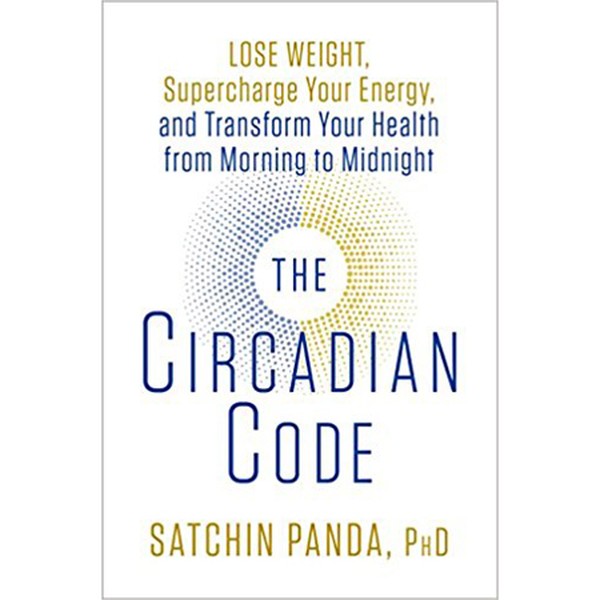How To Get Your Circadian Rhythm Back On Track
What exactly is a circadian rhythm?
If you’ve ever noticed you tend to feel energised and drowsy around the same times every day, you have your circadian rhythm to thank. It’s basically a 24-hour internal clock running in the background of your brain, and cycles between sleepiness and alertness at regular intervals. It's also known as your sleep/wake cycle.
For most adults, the biggest dip in energy happens in the middle of the night (somewhere between 2:00am and 4:00am, when they're usually fast asleep) and just after lunchtime (around 1:00pm to 3:00pm, when they tend to crave a post-lunch nap). Those times can be different if you’re naturally a night owl or a morning person. You also won’t feel the dips and rises of your circadian rhythm as strongly if you’re all caught up on sleep. It’s when you’re sleep-deprived that you’ll notice bigger swings of sleepiness and alertness.
Programmed to turn genes on or off at different times of the day or night, your circadian rhythm influences every aspect of your health.
What are the signs your circadian rhythm is out of balance?
If you’re experiencing brain fog in the morning, digestive issues, acid reflux, late-night hunger pangs, mild joint pain or body pain or are feeling low, lethargic and struggle to fall asleep, it could well be that your circadian rhythm is out of whack.
What kind of person is most likely to be affected?
While it’s commonly thought shift workers are those most affected by circadian disruption, it’s actually nine-to-five workers who tend to pay little attention to their circadian rhythm and are more at risk of throwing their delicate body clock out of balance.
Staying up late into the night; sleeping less than six hours consistently for several days; staying up for an extra two or three hours on the weekend to socialise; and even having a late dinner for a couple of nights a week are all disrupting our circadian rhythms in the same manner as shift work does to shift workers.
Which other lifestyle factors can affect the body clock?
The prolific use of phones, laptops and other screens can really take its toll on your circadian rhythm, throwing everything quite quickly out of sync. Firstly, the bright light from screens directly disrupts the brain’s circadian clock and affects sleep. Secondly, being on social media, checking emails or news sites increases stress levels, which can delay sleep.
Also, be wary of drinking coffee in the late afternoon or evening as well as avoiding large amounts of simple (aka white) carbs in the evening – these will cause spikes in your blood sugar, which could make you hungry late at night and keep you awake.
How bad is it to have a lie-in at the weekend?
A lie-in isn’t the best way to catch up on sleep. An increasing amount of studies have suggested having a lie-in at the weekend is forcing your body into a state of jetlag. For example, if you tend to wake up around 6am during the week but lie in past 9am on the weekend, it’s the equivalent of crossing three time-zones – everything else gets pushed back and even though you haven’t physically travelled, your body feels as if you did.
It takes your circadian clock an average of one day to adjust to a one-hour shift in time zone, so when you go back to your weekday routine after the weekend, your body again feels as if you’re flying back by three time-zones. For the next three days your circadian rhythm is playing catch up – in other words, you are in constant state of jetlag, which can take its toll on your health in numerous ways.
More than 50% of the population in modern society experiences social jet lag. You’re far better off simply going to bed earlier during the week.
How can a disrupted circadian rhythm take its toll on your health?
When your circadian rhythm is disrupted, the immediate repercussions are that your sleeping, waking and digestive systems are thrown off. Longer-term effects include increased risk of cardiovascular events, obesity and even neurological problems like depression and bipolar disorder.
An unbalanced body clock can also contribute to weight gain – firstly, a sleep-deprived brain makes unhealthy food choices, making us more likely to reach for quick energy fixes like sugar and white carbs. Secondly, when we eat at the wrong time (e.g. a later dinner or not leaving enough time between dinner and breakfast), our bodies take longer to process that food and are more likely to store that energy as fat.
You speak a lot about diet in your book – can you tell us why?
If you’ve ever wondered why diets haven’t worked for you in the past, timing might be the reason. Even if you were diligently exercising; counting calories; avoiding fats, carbs and sweets; and upping your protein intake, it’s likely you weren’t respecting your circadian clock. If you eat late at night or start breakfast at a wildly different time each morning, you’re constantly throwing your body out of sync.
In short, when eating occurs at random times throughout the day and night, your body’s fat-making process stays on all the time. At the same time, glucose created from digested carbs floods our blood and the liver becomes inefficient in its ability to absorb glucose. If this continues for a few days, blood glucose continues to rise and reaches the danger zone of prediabetes or diabetes.
Is there anything specific we should, or shouldn’t eat at certain times?
Yes and no. While timing is everything when it comes to your evening meal (you should ideally allow a ten or 12-hour window between dinner and breakfast, and that includes your first coffee of the day), it could also be worth eating a low-carb meal in the evening, especially if you work late into the night.
Also try to increase your fibre intake, and if you’re prone to heartburn or acid reflux, cut back on your protein come dinner time – protein can be acidic and increase your risk of heartburn. Most importantly, never have caffeine in the evening – the overwhelming majority of us break down caffeine very slowly, making it tricky to fall asleep.
What are the easiest ways to get your rhythm back on track?
1. Turn off notifications: At around 8pm every night, either turn your phone to silent or put it on night mode – this will make you feel sleepier sooner. Never check emails, texts or social media 30 minutes before bed.
2. Maintain an eating window: Aim to eat or drink all your calories within a ten-hour window – even if you have a coffee at 6am and no real food till 8am, your eating window technically starts at 6am. You can go outside this window one day a week.
3. Sleep in a dark room: Unless you live in an urban environment where there is no light pollution, always keep your curtains closed to encourage deep sleep. If street lights come into your room, consider using an eye mask.
4. Exercise in the late PM: Late afternoon/early evening is actually the optimal time for exercise as we have best muscle tone and flexibility at that time. However, exercising late at night can increase cortisol levels so if it’s your only option, do it in a dimly-lit room and take a cool shower afterwards to reduce body temperature.
5. Don’t hit snooze: If you feel the need to snooze, you need more sleep. Go to bed earlier; the best way to wake up refreshed is to have enough sleep by going to bed earlier.
6. Get bright light ASAP: Get some bright light immediately after waking up – open your curtains or turn on your overhead light or consider doing some exercise outdoors. This will help to suppress melatonin, the sleep hormone.
7. Stick to a sleep schedule: Try to be as consistent as you can, waking up at the same time every day. If you’re waking up two hours later on the weekends, it’s a sign you’re not getting enough restorative sleep during the week.
The Circadian Code by Dr Satchin Panda is available now from Amazon, priced £14.99
DISCLAIMER: We endeavour to always credit the correct original source of every image we use. If you think a credit may be incorrect, please contact us at info@sheerluxe.com.



